Strategic Initiatives
CRKN’s work is guided by three strategic goals from our Strategic Plan 2025–2029: Drive the Evolution of Open Knowledge, Share our Collective Value, and Innovate and Collaborate for a Sustainable Future. All the work we carry out is reflective of and supports at least one of these goals. This year, we have made significant strides towards these goals, as highlighted in the sections below.

Drive the Evolution of Open Knowledge
The research landscape is rapidly changing. Working with our members as a collective community, we must actively drive these changes to create an open and sustainable research ecosystem that can truly advance equitable access to knowledge.
10th Anniversary and Renewal of the Partnership for Open Access
This year, CRKN and Érudit renewed the Partnership for Open Access (POA) and celebrated its 10th anniversary. Supported by 57 CRKN members, the POA now provides funding to more than 240 scholarly journals. In the past year alone, the POA supported the flip of several journals to open access and facilitated the publication of over 2,000 OA articles without article processing charges. To mark this milestone, the POA launched a refreshed visual identity and a new webpage showcasing its impact, history, and continued evolution.

Read and Publish Agreement with the Royal Society of Chemistry
CRKN signed a new three-year read and publish agreement with the Royal Society of Chemistry (RSC), enabling authors at participating member institutions to publish open access in both hybrid and gold RSC journals at no cost to the author. The agreement is expected to result in over 500 open access articles by Canadian authors annually, while maintaining unlimited reading access. Guided by CRKN’s Licensing Principles and member feedback, the Content Strategy Committee negotiated this agreement to maximize value and support Canada’s transition to open scholarship.
Simplifying Open Access Reporting with OA Switchboard
To support more efficient and transparent open access publishing, member institutions now have access to the OA Switchboard—a centralized platform for sharing publication data between institutions, funders, and publishers. With a number of publishers on board, including Wiley, Oxford University Press, and the Royal Society of Chemistry, members can more easily track open-access outputs by affiliated authors, reduce administrative burdens, and improve reporting. This shared infrastructure helps streamline workflows and strengthens Canada’s collective capacity to manage and advance open research.
Modernizing CRKN’s Digitization Workflow with the Manifest Editor Tool
CRKN enhanced its digitization workflow by adopting the open-source, community-supported Digirati Manifest Editor. This software tool simplifies the creation of International Image Interoperability Framework (IIIF) manifests and improves the metadata creation process, allowing CRKN to make digitized content available on Canadiana more quickly and with fewer manual steps. After extensive testing and customization, the tool is now fully integrated into our workflow. By aligning with IIIF, CRKN is reducing workflow delays, supporting open standards, and improving collaboration with member institutions embracing IIIF in their own digitization efforts.
SciFree Journal Search Tool Now Available on CRKN Website
CRKN launched the Journal Search Tool (JST), developed by SciFree, directly on our website to help researchers easily explore open-access publishing options. The JST enables users to search by title, subject area, and other filters to see which journals are covered by CRKN agreements. This new tool was part of a broader launch of the new Open Access section of our website. Increasing the visibility of CRKN’s open access initiatives and providing easy access to the JST tool reflects CRKN’s ongoing commitment to supporting open scholarship and ensuring that knowledge is accessible to all.
Metadata and Preservation Updates
In preparation for major updates to the Canadiana access platform, CRKN converted all Canadiana portal metadata to the MARC21 format. Staff conducted thorough quality control to ensure the accurate display of records on the beta Blacklight site. Additionally, the team created an inventory of the CIHM microfiche collection, uncovering discrepancies and metadata errors. To support preservation and enable institutions to responsibly manage physical copies, CRKN established the CIHM Preservation Plan Task Group in March 2025. This group will guide strategies for preserving the collection while allowing safe disposal of duplicate microfiche copies.
Digital Collections of the Future: CRKN’s CFI Innovation Fund Project
CRKN reached a major milestone for our Open Science Infrastructure for Canadiana: Digital Collections of the Future project. University of Ottawa submitted the project proposal to the Canada Foundation for Innovation in February 2025. This achievement reflects over three years of collaborative effort, with deep gratitude to University of Ottawa, Dr. Constance Crompton and the other members of the research team, partner institutions, CRKN staff, and members for their continued support and commitment to supporting this opportunity to transform Canadiana into innovative open research infrastructure.
Inaugural Call for Canadiana Collection Development Projects
Together with the Canadiana Content Sub-Committee (CCSC) and the Preservation and Access Committee (PAC), CRKN launched our inaugural call for Canadiana collection development projects. Centered on the theme “Exploring Communities,” the call invited members to submit digitization and digital content sharing proposals that address historical gaps and support current research priorities. This initiative aimed to diversify and expand the Canadiana collection by amplifying underrepresented voices. It represents a significant step toward evolving Canadiana through community-driven contributions, reflecting our ongoing commitment to reconciliation and equitable access to Canada’s documentary heritage.
Launch of the Development Roadmap
In 2024, CRKN launched a multi-year development roadmap to modernize the Canadiana infrastructure, with implementation continuing through the end of 2025. Key initiatives include new internal collection management tools, enhanced interoperability via API, a consistent persistent identifier solution across 64 million items, and an accessible, user-friendly image and collection viewer. A new interface will also improve search and discovery. Thanks to open-source technologies and strong cross-team collaboration, the Infrastructure and Development and Heritage Services teams are already halfway through this ambitious plan to strengthen access to Canada’s digital heritage.
Digitization Collaboration with the University of Alberta
CRKN and the University of Alberta Library have collaborated to digitize and add 36 volumes of the Irish University Press Series of British Parliamentary Papers to Canadiana. These volumes, from the “Colonies: Canada” and “Colonies: Canadian Boundary” series, were selected for their relevance to Canadian history and document Great Britain’s administration of Canada from 1802 to 1899. The University of Alberta Library is one of the few known institutions to hold the entire collection, which contains invaluable information about British colonization and administration in the 19th century. These materials are now freely accessible globally, supporting research into Canada’s colonial past.
Digitization Collaboration with Science Dimension
In partnership with the National Research Council of Canada (NRC), CRKN added 94 issues of Science Dimension (1969–1984) to the Canadiana collection. This bilingual publication showcases scientific research from the NRC and scientists across Canada, featuring striking visuals and articles on innovations such as plant-based meat substitutes and the Canadarm. As CRKN’s first digitization project with the NRC, now an Associate Member, this collaboration enriches Canadiana with a vibrant record of Canada’s scientific and technological history.
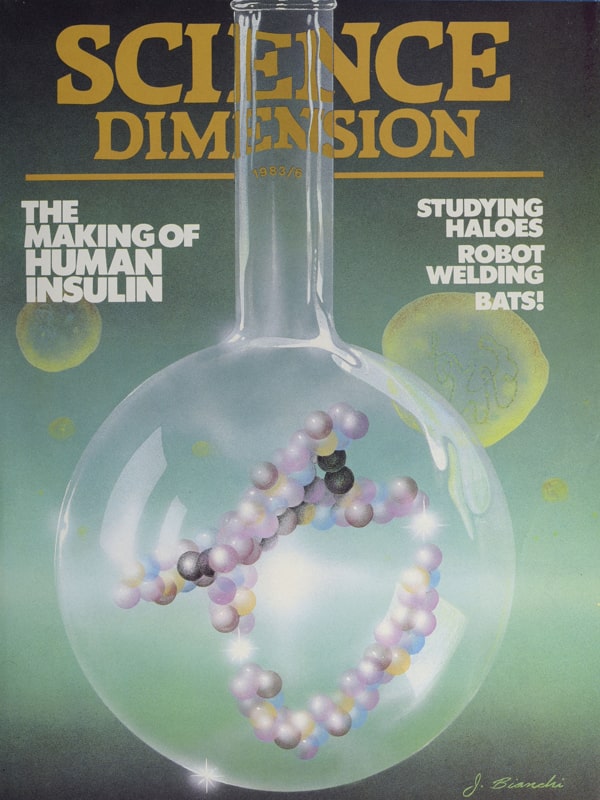
Share our Collective Value
The Canadian library community is strong and determined to build a better future for researchers and the public. We have bold goals and to reach them we will need to advocate effectively for our vision by making our value and impact clear to the research community and beyond.
2024 Member Summit and AGM
The 2024 CRKN Member Summit and Annual General Meeting took place from October 2 to 4 at the Ottawa Marriott Hotel in Ottawa, Ontario. This year’s Summit marked a major milestone as CRKN celebrated its 25th anniversary and introduced its Strategic Plan for 2025–2029. The three-day event offered a rich lineup of sessions and discussions about CRKN’s programs, with additional contributions from the Coalition for Canadian Digital Heritage and the National Indigenous Knowledge and Language Alliance. A highlight of the Summit was a celebratory reception recognizing Camille Callison as the recipient of the 2024 Ron MacDonald Distinguished Service Award.
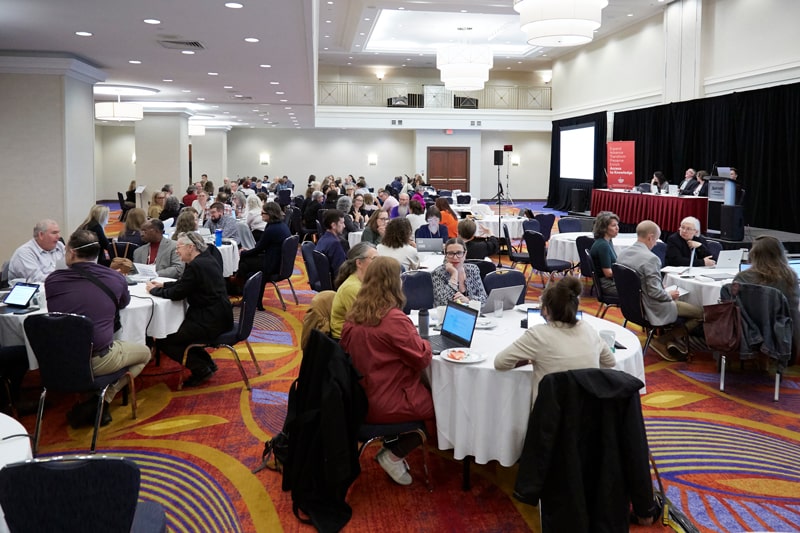
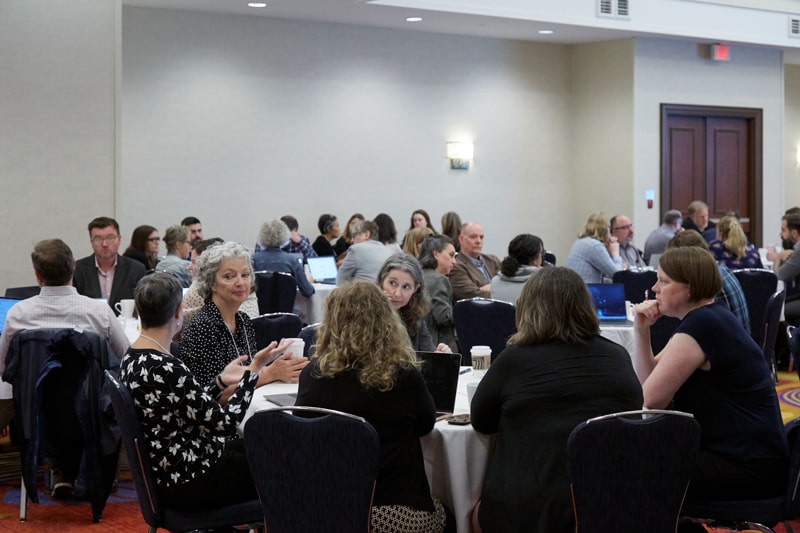
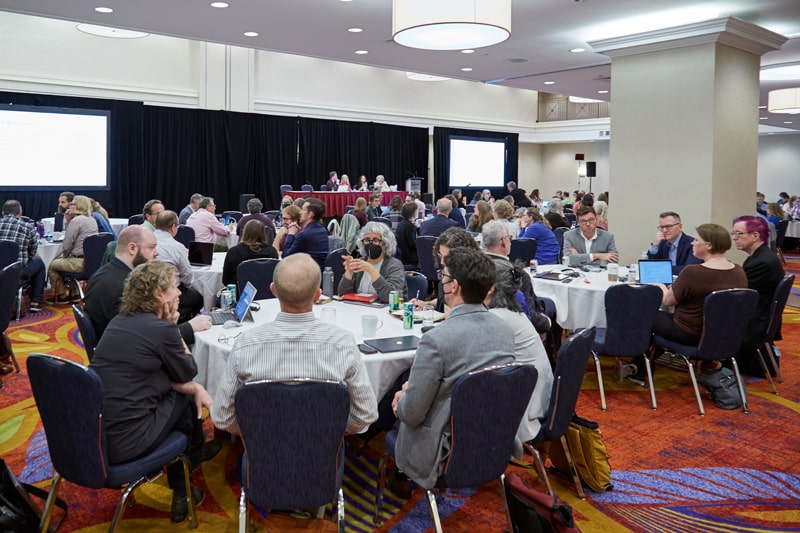
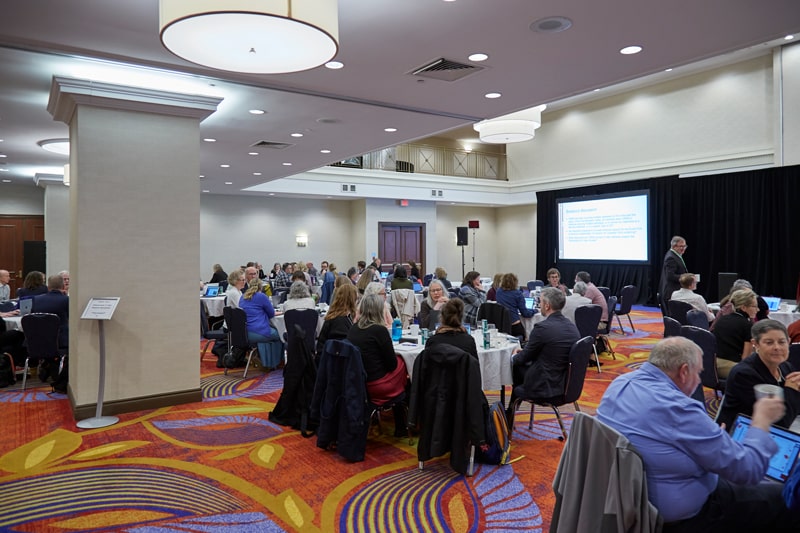
CRKN Celebrates 25 Years of Collaboration
In 2024, CRKN celebrated its 25th anniversary, marking a quarter century of Canadian institutions collaborating to enable access to knowledge. Since its founding in 1999 as the Canadian National Site Licensing Project, CRKN has grown from licensing digital scholarly content to leading national efforts in open access, persistent identifiers, and heritage digitization. From removing the paywall on Canadiana, to taking leadership roles with ORCID-CA and DataCite Canada, CRKN continues to shape a more open and connected research ecosystem. Thank you to our members, partners, volunteers, and staff for making this journey possible.




Camille Callison Awarded the 2024 Ron MacDonald Distinguished Service Award
Camille Callison, University Librarian at the University of the Fraser Valley, was recognized with the 2024 Ron MacDonald Outstanding Service Award for her exceptional contributions to Indigenous librarianship and knowledge stewardship in Canada. Camille chairs the National Indigenous Knowledge and Language Alliance (NIKLA-ANCLA) and co-leads the Respectful Terminologies Platform Project (RTPP), a national initiative focused on ensuring the respectful and accurate representation of Indigenous names, places, and cultural identifiers. Her leadership and advocacy have had a meaningful impact on equity and inclusion in the library and cultural heritage sectors. The award was presented during CRKN’s Member Summit and AGM in Ottawa on October 3, 2024.
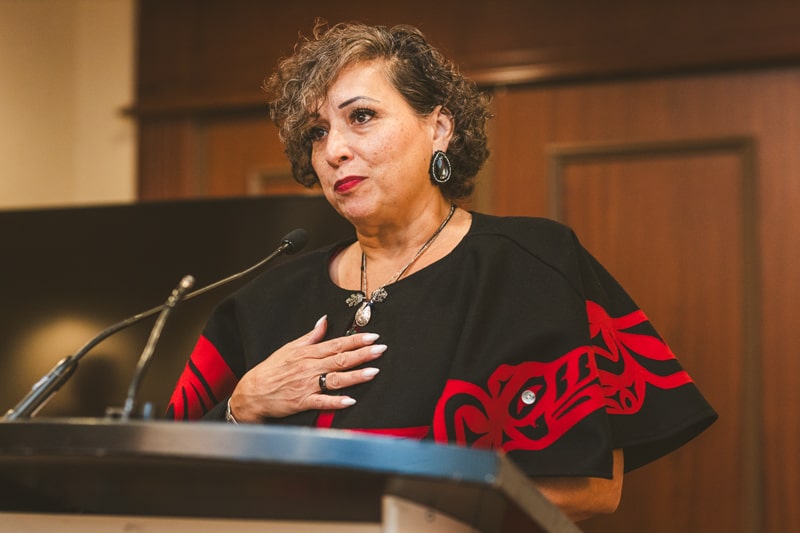
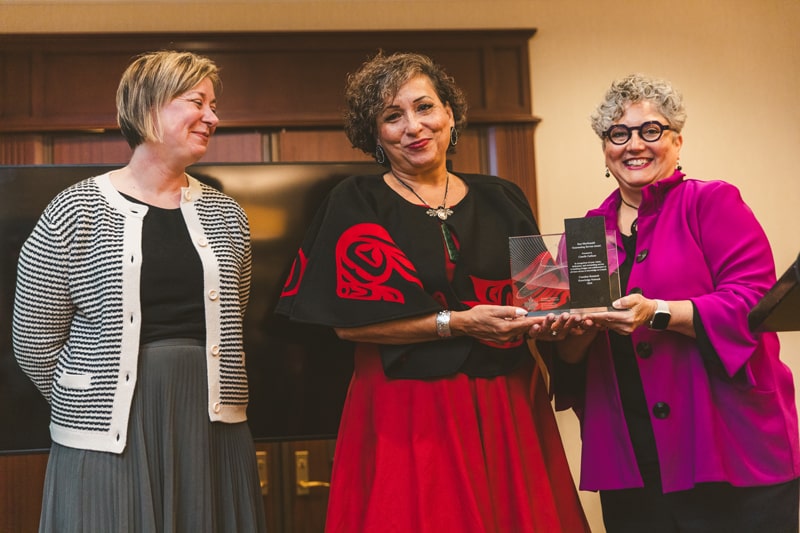
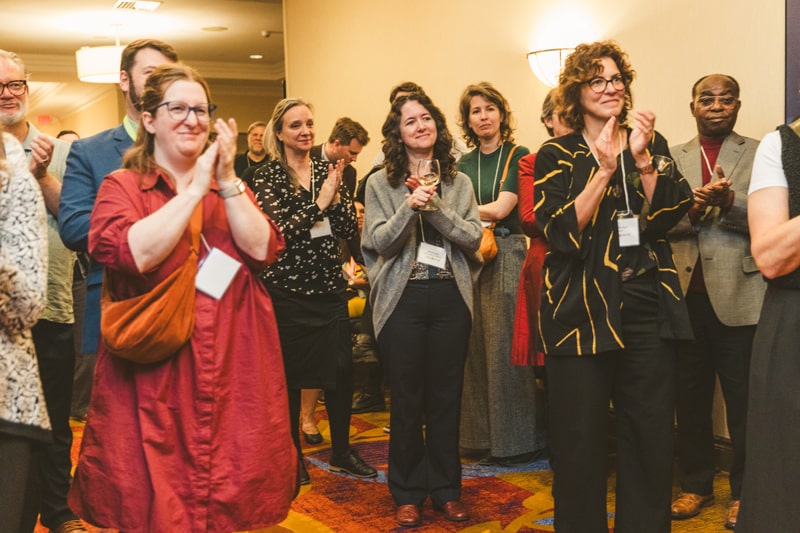
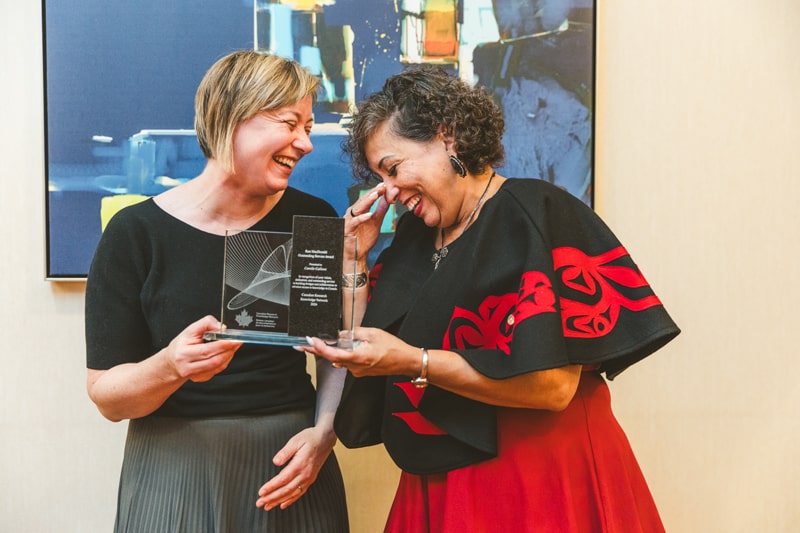
Newsletter Launch
In March 2025, CRKN launched In the Know / Au courant, a bilingual newsletter designed to keep members and stakeholders informed about our latest initiatives, events, and sector-wide updates. The newsletter features key CRKN projects, strategic updates, community news, and a member-driven section that celebrates contributions from across Canada’s research and knowledge ecosystem. Through this new channel, we amplify the successes of our members and showcase the collective impact of CRKN and our community in driving widespread access to research and knowledge.
New and Updated Web Content for Open Access and PIDs
Over the past year, CRKN created and refreshed key sections of our website to reflect our ongoing priorities and the needs of our users. A brand-new Open Access section now makes it easier for the community to access information about CRKN’s open access agreements and initiatives. The Persistent Identifiers section was updated for improved accessibility and clarity, featuring enhanced content on the National PID Strategy, as well as new pages dedicated to the ORCID Canada Consortium and the DataCite Canada Consortium. These updates support our goal of providing transparent, user-friendly access to our core programs and services.
Coalition for Canadian Digital Heritage Principles
The Coalition for Canadian Digital Heritage (CCDH) released their new Principles in 2024. The CCDH Principles enable the stewardship and cross-sectoral coordination of content priorities for digitization and digital preservation and are the result of excellent collaborative work across CCDH’s Executive and Advisory Committee. To date, the Principles have been endorsed by key regional and national organizations across the GLAM sector. CRKN continues to provide Secretariat support for CCDH, ensuring that the Coalition and its members can come together to work towards greater sustainability and progress of digitization and preservation across Canadian GLAM organizations. Learn more about CCDH’s work in their 2024 Year in Review.
Innovate and Collaborate for a Sustainable Future
As we create pathways to trusted knowledge, we will work together inclusively and creatively to build the empowered future that we believe in – and it must be a future that is sustainable for our member institutions.
Advancing Searchability of Héritage Collections with ICR Technology
In partnership with Library and Archives Canada (LAC), CRKN has completed the transcription of the Departmental Letterbooks, a collection of approximately 600,000 handwritten pages from the RG 10 “Records relating to Indian Affairs” sub-collection, using intelligent character recognition (ICR) and Transkribus software. This achievement marks the first major step in making handwritten Héritage materials more searchable and accessible. The transcriptions support Indigenous claims researchers and historians by enabling full-text search and downloadable PDFs. CRKN is grateful to our collaborators and community experts for their invaluable contributions to this initiative.
2024 CRKN Virtual Conference
The 2024 CRKN Virtual Conference: Building Lasting Connections featured 18 sessions exploring digital heritage, open scholarship, and persistent identifiers. The conference showcased how collaboration across institutions enhances access to knowledge including initiatives in Indigenous language revitalization, queer history, open research tools, and respectful terminology initiatives. A pre-conference “Intro to CRKN” session on May 15 offered an overview of CRKN’s programs. With insightful speakers and meaningful discussions, the conference reinforced the importance of community in shaping Canada’s open knowledge landscape.
Unlocking the Future: Conversations on the Canadian Research Landscape Post-Transformative Agreements Panel
CRKN hosted the panel “Unlocking the Future: Conversations on the Canadian Research Landscape Post-Transformative Agreements,” originally planned as the keynote for the 2024 Virtual Conference, on September 25, 2024. Moderated by Denise Lafitte, Acting Vice-Provost and Chief Librarian at the University of Alberta, the panel featured Tanja Niemann, Executive Director of Érudit; Sonya Betz, Head of Open Publishing and Digitization Services at the University of Alberta; and Ian Robson, Head of Information Resources at Queen’s University. Together, they explored the future of open access beyond transformative agreements and outlined steps toward a more sustainable OA model in Canada.
CRKN Joins Global Effort for Interoperable Digital Access with IIIF
In 2024, CRKN joined the International Image Interoperability Framework (IIIF) Consortium as an associate member to support the evolution of the Canadiana platform. IIIF is a set of open standards that enable high-quality, large-scale delivery of images and audio while ensuring interoperability across digital collections. By adopting IIIF, CRKN gained access to widely used open-source tools, such as the Mirador Viewer, and strengthened our ability to build open, interoperable infrastructure that supports cutting-edge research on Canada’s history.
CRKN Welcomes SSHRC and NSERC into ORCID-CA
The Social Sciences and Humanities Research Council (SSHRC) and the Natural Sciences and Engineering Research Council (NSERC) have officially joined the ORCID Canada Consortium in 2024. As long-time members of the Canadian Persistent Identifier Advisory Committee, their participation marked a significant step forward in Canada’s adoption of persistent identifiers (PIDs). By integrating ORCID iDs into their systems, SSHRC and NSERC will reduce administrative burden for researchers and strengthen the national PID strategy. Their involvement supports a broader effort to streamline research information management across Canadian institutions.
